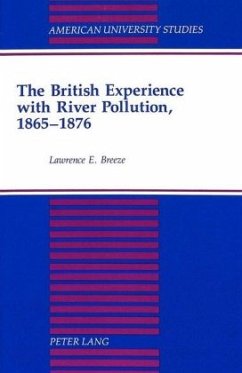This book provides a historical account of two Royal Commissions in Victorian Britain that sought solutions to river pollution problems attributed to industrial waste and town sewage. It describes and analyzes the legislative outcome, the Rivers Pollution Act of 1876, which remained the basic law until 1951. An introductory chapter and an epilogue place developments of the 1860's and 1870's into the broader context of British history. The study dispels any notion that environmental issues are largely twentieth-century phenomena. Two themes recur in the general response to the work of the commissions: fear of the economic consequences of adopting anti-pollution measures and a stubborn attachment to local control.
"While the study is valuable for its detailed treatment of river pollution in Britain per se, it is also significant because it adds to our general knowledge about water pollution problems and sewerage development in the late nineteenth century. Students of the American experience will benefit from the background that this study provides." (Martin V. Melosi, University of Houston)
"As a result of industrial pollutants and an increasing urban population, the rivers of 19th-century Britain had so deteriorated that pollution control came to be seen as vital, in turn leading to detailed government-initiated investigation. Dealing with these proceedings, and with resultant legislation enforcing improvement, this book is of great value to public health practitioners and historians alike, whether in Europe or the U.S.A." (R.W. Rennison, Past President of the Newcomen Society and author of 'Water to Tyneside: a History of the Newcastle and Gateshead Water Company'. "...Breeze's careful research certainly makes it a worthwhile addition to our knowledge of the Victorian environment." (Joseph R. Skoski, Victorian Studies)
"As a result of industrial pollutants and an increasing urban population, the rivers of 19th-century Britain had so deteriorated that pollution control came to be seen as vital, in turn leading to detailed government-initiated investigation. Dealing with these proceedings, and with resultant legislation enforcing improvement, this book is of great value to public health practitioners and historians alike, whether in Europe or the U.S.A." (R.W. Rennison, Past President of the Newcomen Society and author of 'Water to Tyneside: a History of the Newcastle and Gateshead Water Company'. "...Breeze's careful research certainly makes it a worthwhile addition to our knowledge of the Victorian environment." (Joseph R. Skoski, Victorian Studies)
